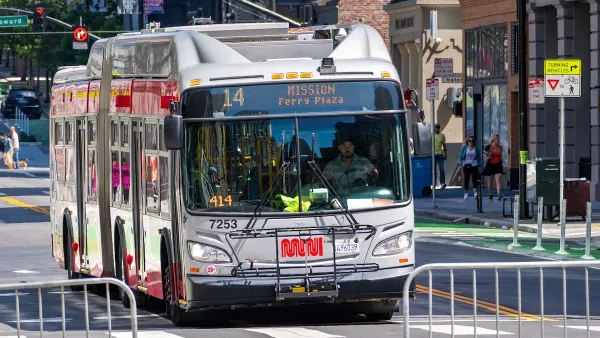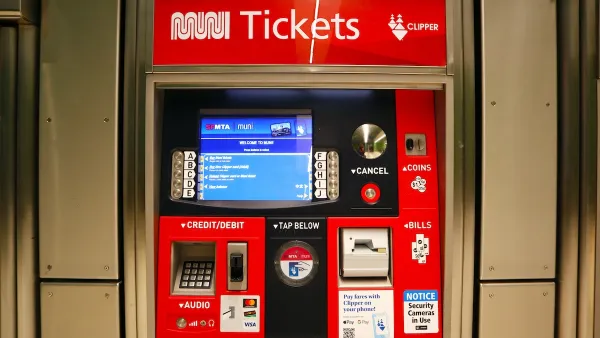Ryan Holeywell discusses a new report from researchers at the University of California, Berkeley that examines the top reasons people stop using public transit. Frequent, consistent service is most important to riders.
Findings presented this week at the Transportation Research Board's annual conference in Washington, D.C. may provide guidance for transit agencies trying to balance increases in ridership with strained budgetary environments. "While it's well-known that reliability is important to riders," says Holeywell, "it's less understood how, exactly, common transit problems impact the public's likelihood to reduce their ridership in the long-term."
So, in surveying public transit riders in the San Francisco area, the Berkeley researchers sought to dig deeper into the causes of "unreliability", and how they effect the mindset of riders.
"Frequent, consistent service -- and in particular, reliable transfers between stops -- are what's most important to riders, according to the study. Riders care most about getting picked up from their stop in 10 minutes or less, and they especially value being able to make their scheduled connections. They're not so interested in whether their rides are crowded or whether they can find a seat."
"But a few key things in particular irk passengers: delays that occur once they board a vehicle and delays when they're trying to make a transfer. Delays at transfer stops were more than twice as likely to make someone reduce their transit use than a delay at the point of origin. Riders were especially turned off by delays due to operational problems like backups in the system."
"At a time when transit agencies continue to take budgetary hurdles," concludes Holeywell, "the insights from the study are worth considering. Since certain failings have much larger impacts on ridership than others, it may be in public transportation agencies' best interest to focus resources on minimizing those inconveniences in particular."
FULL STORY: Top Reasons People Stop Using Public Transit

Maui's Vacation Rental Debate Turns Ugly
Verbal attacks, misinformation campaigns and fistfights plague a high-stakes debate to convert thousands of vacation rentals into long-term housing.

Planetizen Federal Action Tracker
A weekly monitor of how Trump’s orders and actions are impacting planners and planning in America.

In Urban Planning, AI Prompting Could be the New Design Thinking
Creativity has long been key to great urban design. What if we see AI as our new creative partner?

King County Supportive Housing Program Offers Hope for Unhoused Residents
The county is taking a ‘Housing First’ approach that prioritizes getting people into housing, then offering wraparound supportive services.

Researchers Use AI to Get Clearer Picture of US Housing
Analysts are using artificial intelligence to supercharge their research by allowing them to comb through data faster. Though these AI tools can be error prone, they save time and housing researchers are optimistic about the future.

Making Shared Micromobility More Inclusive
Cities and shared mobility system operators can do more to include people with disabilities in planning and operations, per a new report.
Urban Design for Planners 1: Software Tools
This six-course series explores essential urban design concepts using open source software and equips planners with the tools they need to participate fully in the urban design process.
Planning for Universal Design
Learn the tools for implementing Universal Design in planning regulations.
planning NEXT
Appalachian Highlands Housing Partners
Mpact (founded as Rail~Volution)
City of Camden Redevelopment Agency
City of Astoria
City of Portland
City of Laramie




























